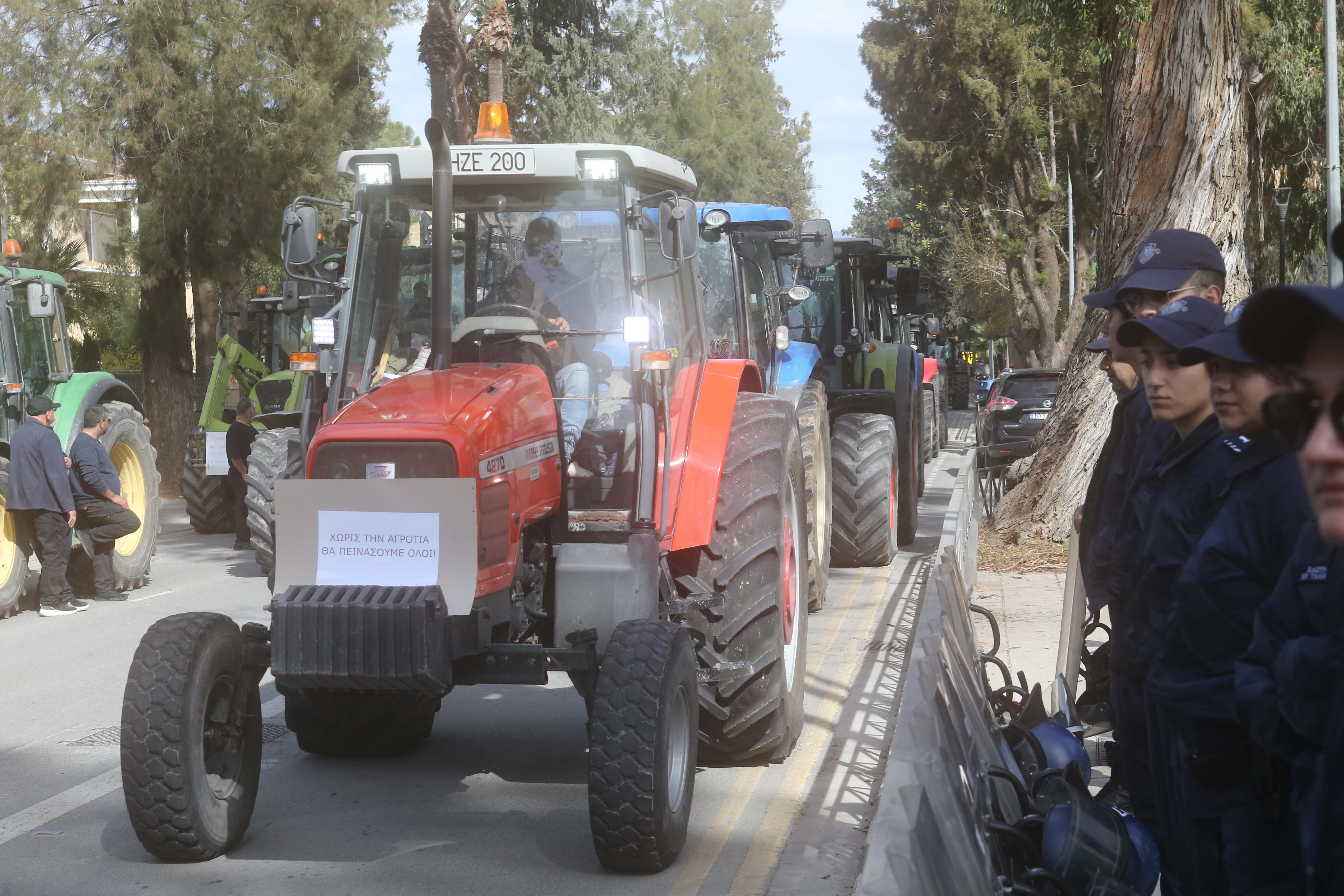Cyprus’ farmers took to the streets on Thursday to protest, like the farmers in many European countries, against Brussels’ so-called climate-friendly policies they consider a big threat to their livelihoods. The protests “are not a whim by a section of the population, nor some random event,” said farmers’ organisations in a resolution they handed over to the president of the European Commission, Ursula von der Leyen.
“It is a form of reaction, the outburst of a wronged class of people, who, while being in despair, at the same time are being asked to take on the burden of asymmetrical European policies which lead them, inevitably to financial ruin,” said the memo. The transition to Net Zero which the Brussels bureaucrats have been pursuing with an array of costly, restrictive policies may seem good on paper, but it is making the survival of farmers even more difficult.
As the Cypriot farmers’ memo said, the protests were not a whim. Farmers have for some time been arguing that green policies – excessive environmental rules – are unfair, economically unviable, and unrealistic. In Germany farmers protested government plans to end the subsidy in agricultural diesel, in The Netherlands the government wants to reduce nitrogen emissions, but most of the complaints were not country specific, which as last week’s big protest outside the European parliament in Brussels indicated.
Farmers grievances are about government taxes, bureaucratic regulations, water storage issues, high energy prices and competition from cheap imports that are not subject to costly European regulations. Imports of cheap Ukrainian wheat, for which quotas and tariffs were waived, led to protests in Poland. Apart from the cheap food imports, farmers in Europe must contend with retailers pushing down prices for farm produce, because they are concerned about the effects of the high cost of living index for consumers.
So, while farmers are faced with higher costs – energy, fertilisers, transport costs which have risen as a consequence of the war in Ukraine, rising interest rates, costly green regulations – they also have to contend with downward pressure on prices and cheap imports. According to Politico, the base price European farmers receive for their produce dropped by almost 9 per cent in the third quarter of last year compared to 2022. Yet production costs were rising.
There is no denying that policies aimed at achieving Net Zero are threatening the livelihoods of farmers and they have every right to protest and demand a change of course by Brussels, which appears not to have properly studied the consequences of the much-vaunted green transition. There will also be political consequences as the far-right parties have been exploiting the farmers’ discontent to advance their own agendas.
The green transition needs to be more gradual, and policies must take into account the economic well-being of the farming community. The pursuit of environmental concerns cannot be given precedence over people’s well-being.






Click here to change your cookie preferences